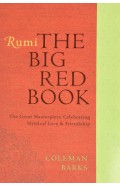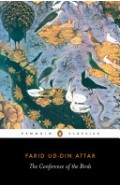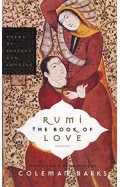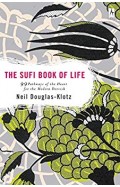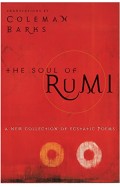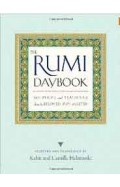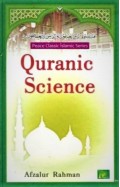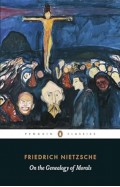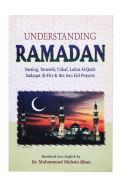- Home
- Books
- Categories
- Non Fiction
- Religion & Spirituality
- Sufism
- Losing My Religion: A Call for Help
Losing My Religion: A Call for Help
By: Jeffrey Lang
-
Rs 1,040.00
- Rs 1,300.00
- 20%
You save Rs 260.00.
Due to constant currency fluctuation, prices are subject to change with or without notice.
LOSING MY RELIGION A Call for Help
LOSING MY RELIGION A Call for Help Dr. Jeffrey Lang Crucial to the vitality of any religious community is its ability to attract and engage descendants and converts. By this measure, notwithstanding the proliferation of mosques and Islamic organizations, the Muslim community in America is not doing at all well. This rather sober assessment motivates Dr. Lang to address, in this book, the alienation from the Mosque of the great majority of America’s homegrown Muslim. He asserts that to effectively respond to the general malaise of American-born Muslims, the Islamic establishment in America needs to be willing to listen to the doubts and complaints of the disaffected. This entails engaging in open discussions on issues with which many in the Muslim community will be uncomfortable, but Lang avers that such open dialogue will be of more benefit to young American Muslims struggling with their faiths than the covert and uniformed discussions that often take place or no discussion at all. As the title suggests, the main aim of this work is not to dissertate on Islam but to share with the reader a perspective to which he became privy and that pertains to a crisis of major proportions in the American Muslim community. The conspicuous and continued near total disconnect of native-born Muslims from the Mosque thwarts all attempts by Muslim activists to establish a viable, self-sustaining, Islamic community in the United States. It is an attempt to share with other concerned believers the content of the communications Dr. Lang has had with members of this population.
LOSING MY RELIGION A Call for Help
LOSING MY RELIGION A Call for Help Dr. Jeffrey Lang Crucial to the vitality of any religious community is its ability to attract and engage descendants and converts. By this measure, notwithstanding the proliferation of mosques and Islamic organizations, the Muslim community in America is not doing at all well. This rather sober assessment motivates Dr. Lang to address, in this book, the alienation from the Mosque of the great majority of America’s homegrown Muslim. He asserts that to effectively respond to the general malaise of American-born Muslims, the Islamic establishment in America needs to be willing to listen to the doubts and complaints of the disaffected. This entails engaging in open discussions on issues with which many in the Muslim community will be uncomfortable, but Lang avers that such open dialogue will be of more benefit to young American Muslims struggling with their faiths than the covert and uniformed discussions that often take place or no discussion at all. As the title suggests, the main aim of this work is not to dissertate on Islam but to share with the reader a perspective to which he became privy and that pertains to a crisis of major proportions in the American Muslim community. The conspicuous and continued near total disconnect of native-born Muslims from the Mosque thwarts all attempts by Muslim activists to establish a viable, self-sustaining, Islamic community in the United States. It is an attempt to share with other concerned believers the content of the communications Dr. Lang has had with members of this population.
Zubin Mehta: A Musical Journey (An Authorized Biography)
By: VOID - Bakhtiar K. Dadabhoy
Rs 892.50 Rs 1,050.00 Ex Tax :Rs 892.50
Borderlands of the Spirit: Reflections on a Sacred Science of Mind (Perennial Philosophy)
By: John Herlihy
Rs 640.00 Rs 800.00 Ex Tax :Rs 640.00
THE UNDERLYING RELIGION -An Introduction to the Perennial Philosophy
By: Martin Lings
Rs 760.00 Rs 950.00 Ex Tax :Rs 760.00
STRUGGLING TO SURRENDER Some Impressions of an American Convert to Islam
By: Dr Jeffrey Lang
Rs 756.00 Rs 840.00 Ex Tax :Rs 756.00
Even Angels Ask A Journey to Islam in America
By: Dr Jeffrey Lang
Rs 714.00 Rs 840.00 Ex Tax :Rs 714.00
Rumi :The Big Red Book The Great Masterpiece Celebrating Mystical Love And Friendship -
By: Coleman Barks
Rs 2,156.00 Rs 2,695.00 Ex Tax :Rs 2,156.00
Rumi The Book Of Love Poems Of Ecstasy And Longing
By: Coleman Barks
Rs 3,055.50 Rs 3,395.00 Ex Tax :Rs 3,055.50
The Sufi Book of Life: 99 Pathways of the Heart for the Modern Dervish
By: Neil Douglas-Klotz
Rs 3,036.00 Rs 3,795.00 Ex Tax :Rs 3,036.00
A Return to the Spirit Questions and Answers -
By: Martin Lings
Rs 592.00 Rs 740.00 Ex Tax :Rs 592.00
Rumi`s Four Essential Practices Ecstatic Body Awakened Soul -
By: Will Johnson
Rs 3,225.75 Rs 3,795.00 Ex Tax :Rs 3,225.75
Borderlands of the Spirit: Reflections on a Sacred Science of Mind (Perennial Philosophy)
By: John Herlihy
Rs 640.00 Rs 800.00 Ex Tax :Rs 640.00
THE UNDERLYING RELIGION -An Introduction to the Perennial Philosophy
By: Martin Lings
Rs 760.00 Rs 950.00 Ex Tax :Rs 760.00
STRUGGLING TO SURRENDER Some Impressions of an American Convert to Islam
By: Dr Jeffrey Lang
Rs 756.00 Rs 840.00 Ex Tax :Rs 756.00
Even Angels Ask A Journey to Islam in America
By: Dr Jeffrey Lang
Rs 714.00 Rs 840.00 Ex Tax :Rs 714.00
Zubin Mehta: A Musical Journey (An Authorized Biography)
By: VOID - Bakhtiar K. Dadabhoy
Rs 892.50 Rs 1,050.00 Ex Tax :Rs 892.50
Borderlands of the Spirit: Reflections on a Sacred Science of Mind (Perennial Philosophy)
By: John Herlihy
Rs 640.00 Rs 800.00 Ex Tax :Rs 640.00
THE UNDERLYING RELIGION -An Introduction to the Perennial Philosophy
By: Martin Lings
Rs 760.00 Rs 950.00 Ex Tax :Rs 760.00
STRUGGLING TO SURRENDER Some Impressions of an American Convert to Islam
By: Dr Jeffrey Lang
Rs 756.00 Rs 840.00 Ex Tax :Rs 756.00
Even Angels Ask A Journey to Islam in America
By: Dr Jeffrey Lang
Rs 714.00 Rs 840.00 Ex Tax :Rs 714.00














-120x187.jpg?q6)









